On 27–28 August, RailNetEurope (RNE) welcomed 50 participants – both on-site in Vienna and online – to its inaugural RNE Summer Academy.
The two-day event featured seven insightful sessions showcasing RNE’s portfolio and ongoing activities. Participants not only had the chance to engage directly with RNE Joint Office experts but also to expand their networks by connecting with colleagues from across RNE Members, Business Partners, and Ministries of Transport.
Day 1 Highlights
RNE’s Secretary General Joachim Kroll opened the event by presenting general information on RNE and introducing the Academy’s programme.
Next on the agenda was a session on Regulatory Affairs, presented by Senior Regulatory Affairs Expert Daniele Imbriani. His presentation offered an overview of RNE interactions with Regulatory Bodies, with a particular focus on the evolving legal framework of the draft Capacity Regulation. Additional topics included Commercial Conditions and the Network Statement & Corridor Information Document.
Discussions during the session underlined that performance management and its coordination will be essential going forward—not only for proper monitoring, but also for identifying the actions needed to improve services across the sector.
The programme then continued with Eva Weber, Team Leader of Finance & Funding, who shared insights into RNE’s EU Funding Activities, highlighting cooperation opportunities with co-beneficiaries.
Day one concluded with a presentation by Elisabeth Hochhold, Head of Legal, Sales & HR, who guided participants through RNE’s preparatory work for assuming the role of Network Coordinator. She also detailed the process of drafting the European Frameworks for Capacity Management, Traffic Management, and Performance Review. The session prompted lively exchanges, as participants discussed the Capacity Regulation’s foreseen timeline and developments. The importance of fostering dialogue within the sector for the smooth implementation of the Capacity Regulation was strongly emphasised.
Day 2 Highlights
The second day began with a session on Capacity Management, led by Senior TTR Implementation Manager Josef Zitzler. Starting with the basics of European rail capacity management, the session then moved towards future challenges, stressing the need for sector-wide cooperation to overcome obstacles.
This was followed by Andras Till, Senior Digital CM Manager, who presented the European IT Landscape and its three-layered strategy, built on Digital Train Information, Digital Capacity Management, and Digital Infrastructure Information. The discussions highlighted that while IT tools are powerful enablers for harmonisation across Europe, they cannot replace the process of alignment among Infrastructure Managers—making sector collaboration indispensable.
The final block focused on Traffic Management. Head of Traffic Management Peter Šišolák presented RNE’s growing activities in this field, including the European TM Network Concept (ETMN), and Railway Collaborative Decision Making (R-CDM). Juraj Maliacek, Senior TM Manager, showcased the new Language Tool with a live demonstration, allowing participants to experience it from a user’s perspective on tablets. Closing the session, Nektarios Zacharias, Senior IT Manager for TIS, introduced the latest updates of the Train Information System (TIS), including the new mobile version.
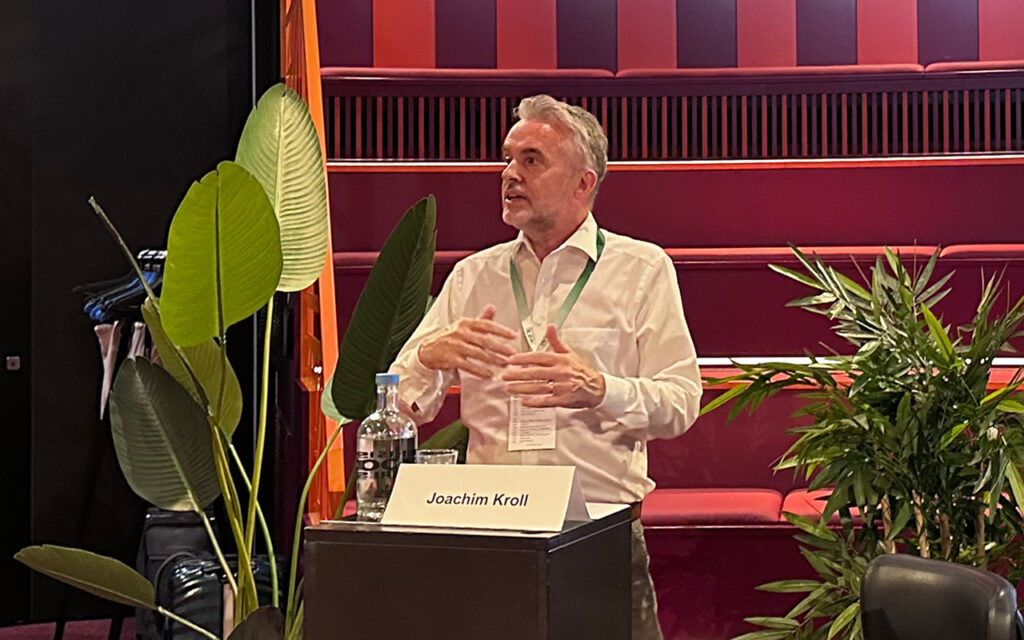
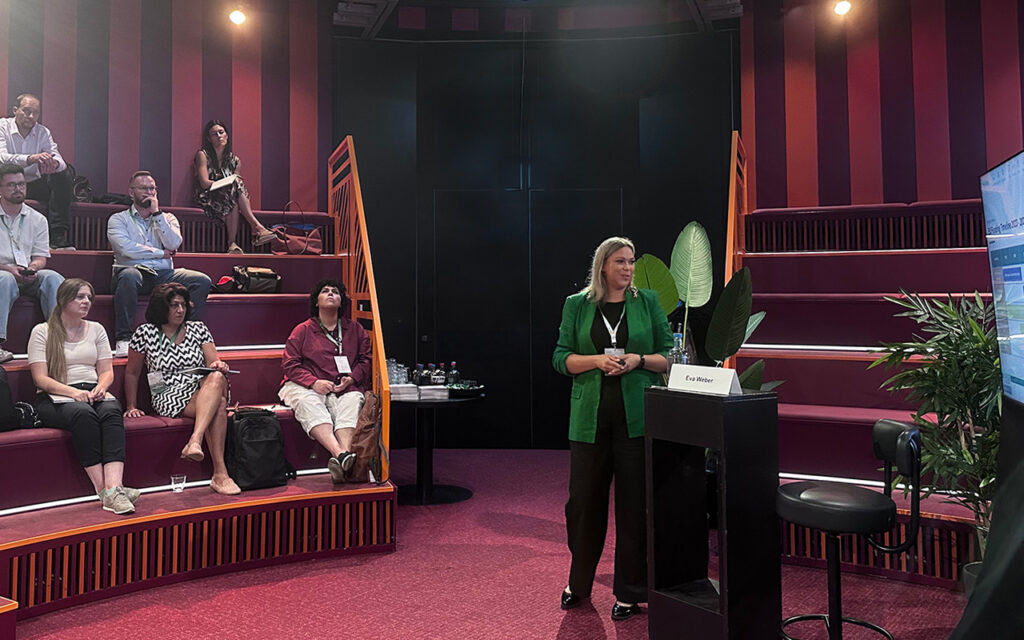
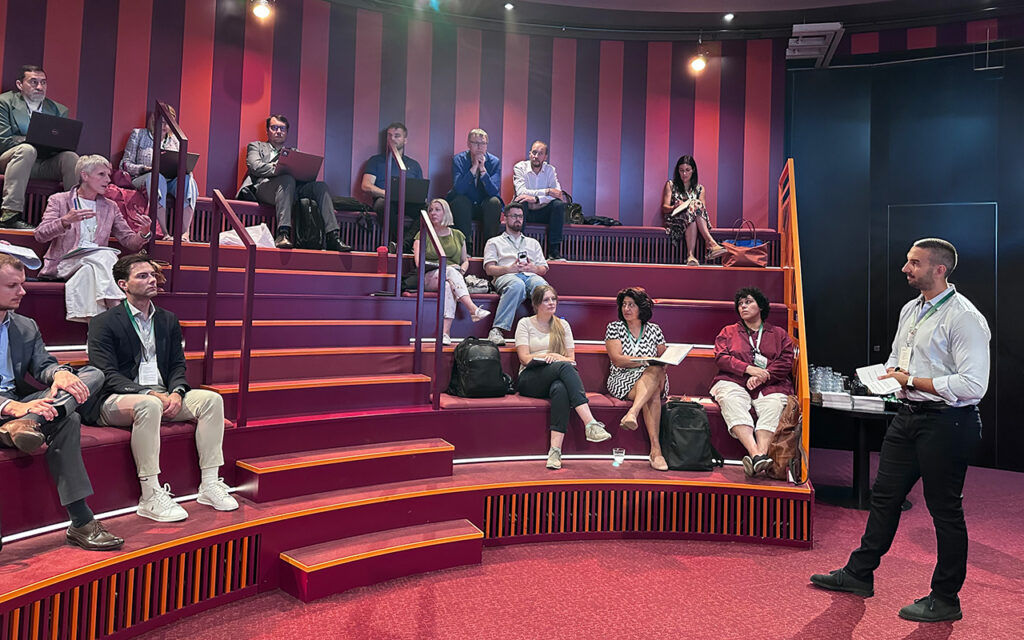
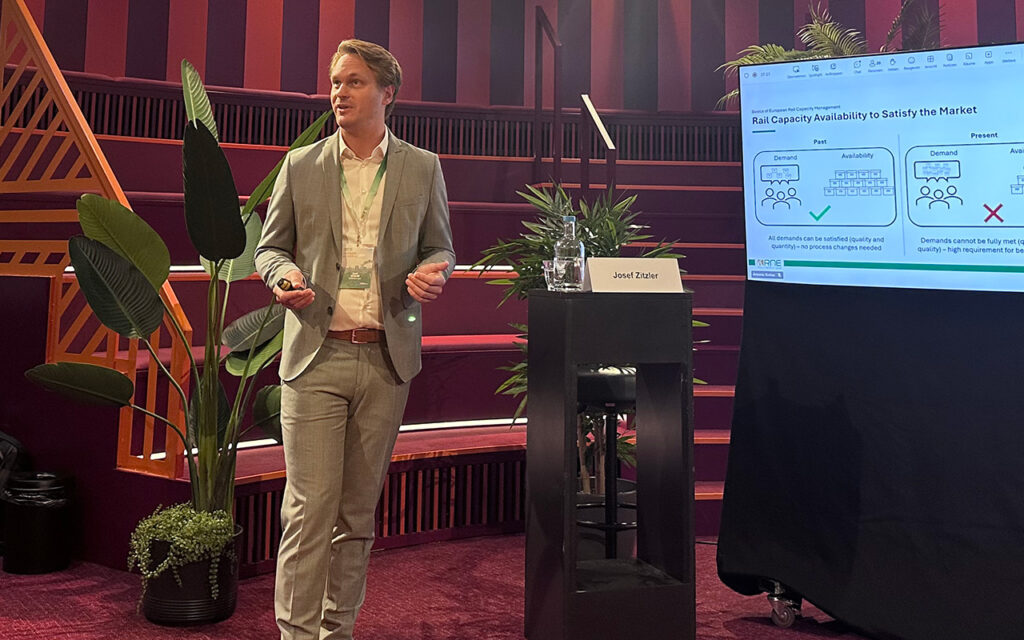
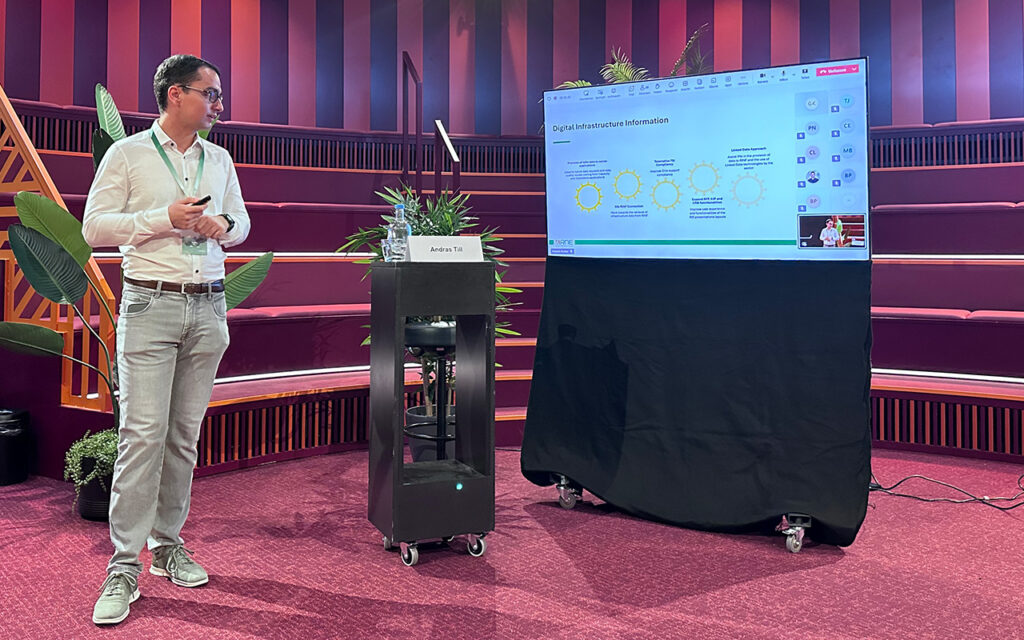
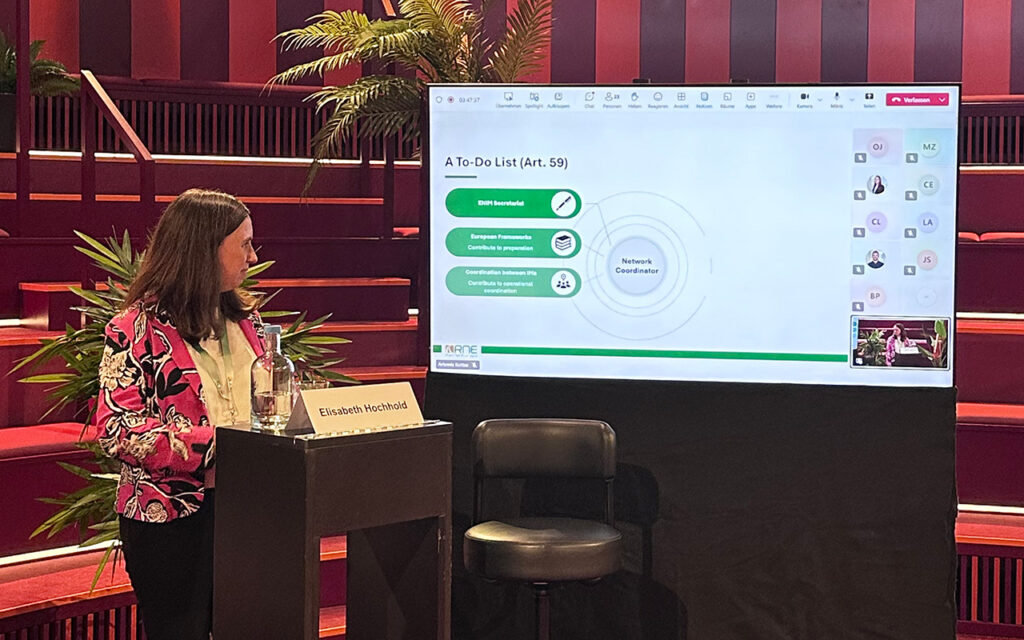
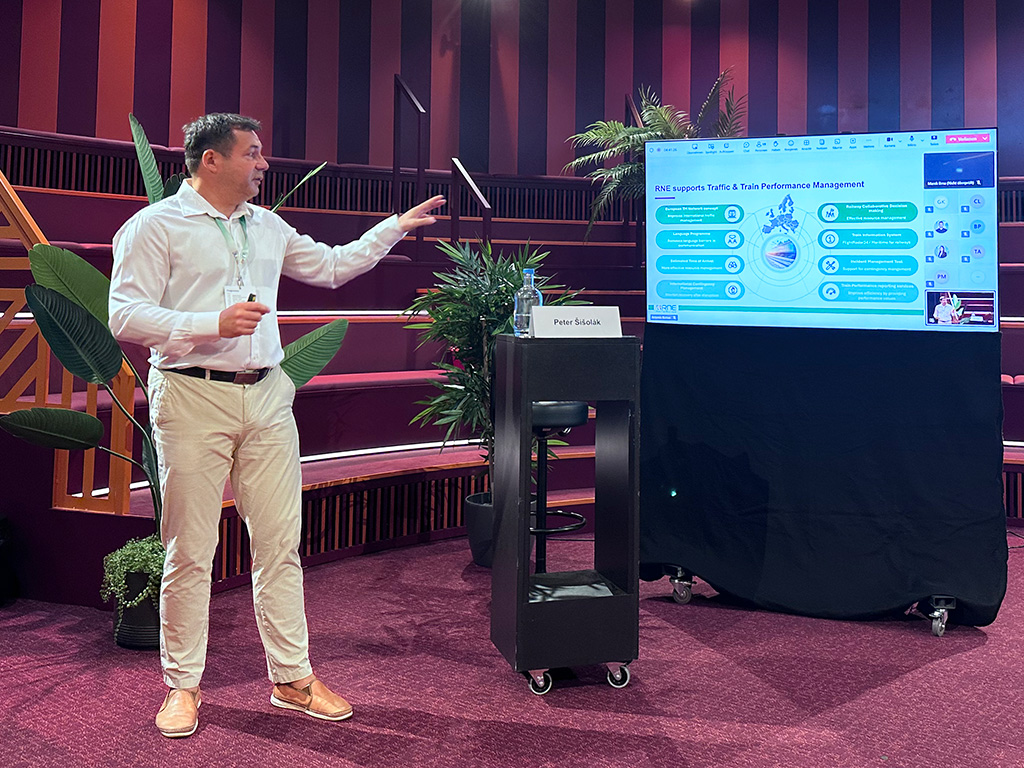
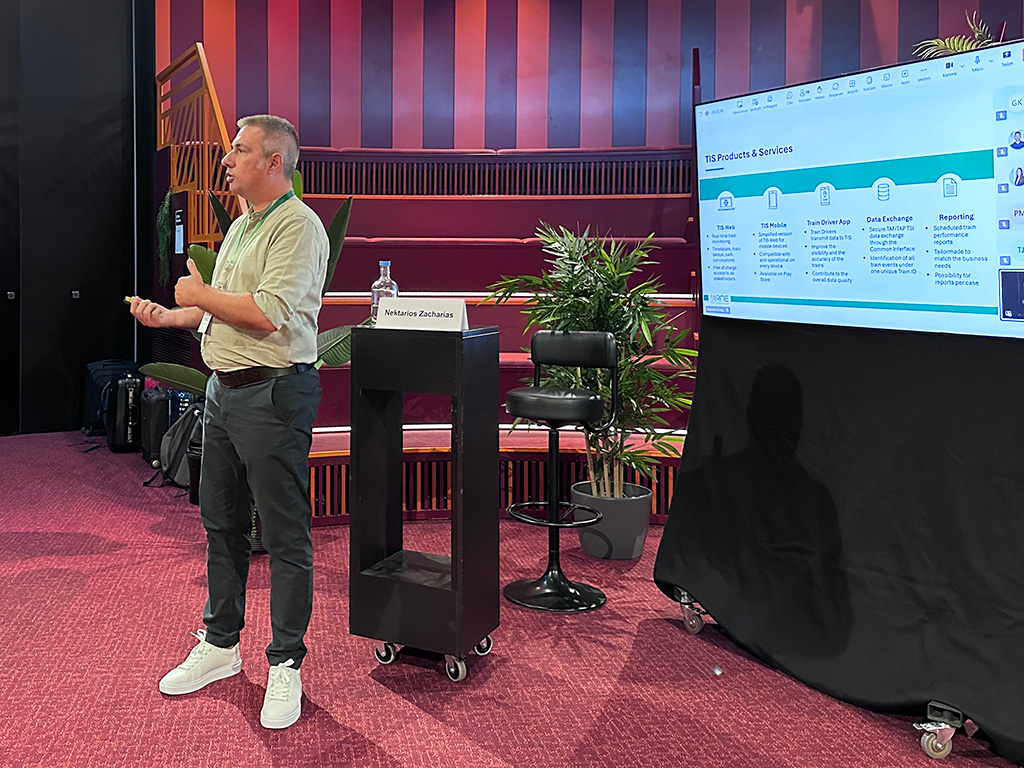
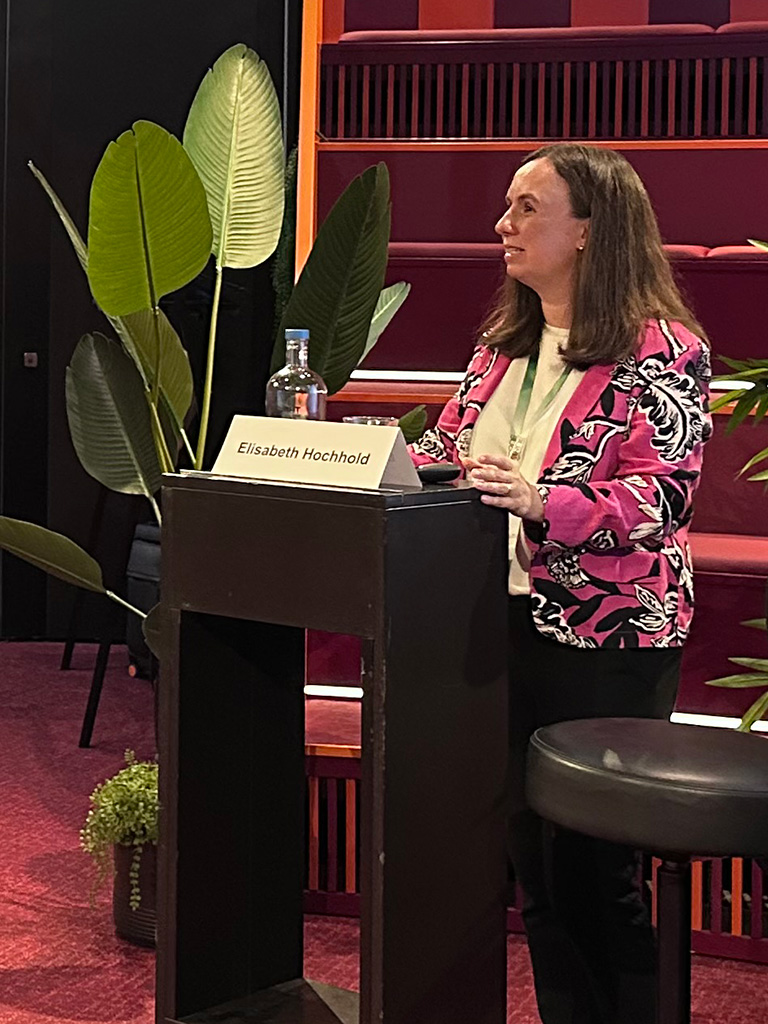
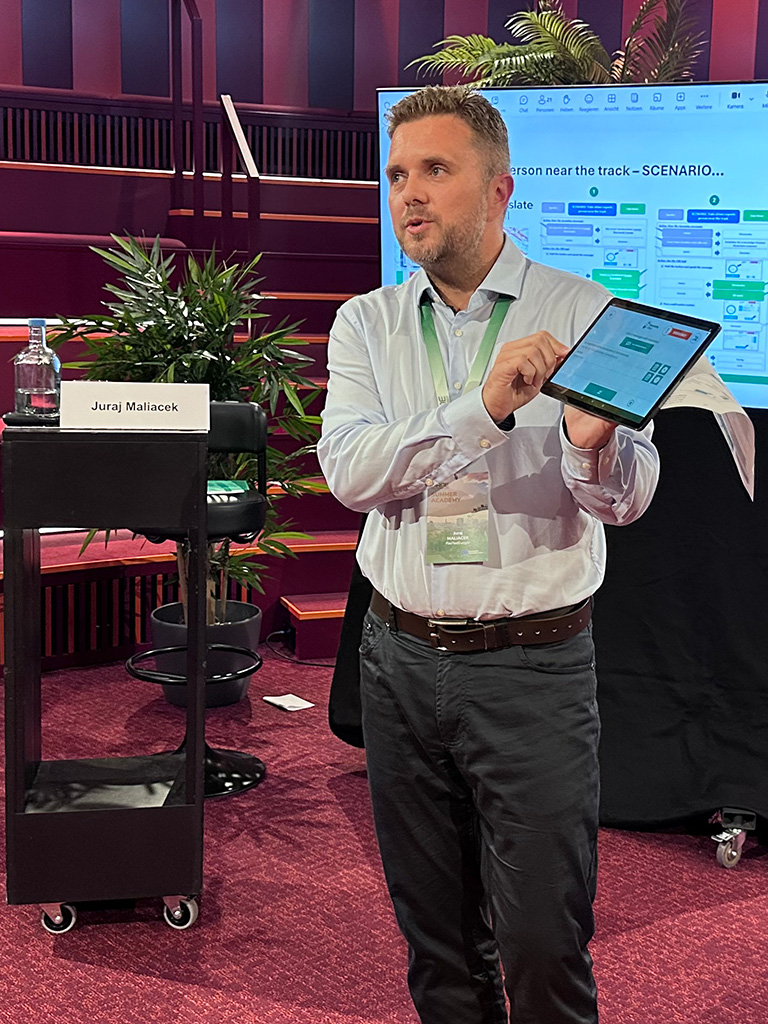
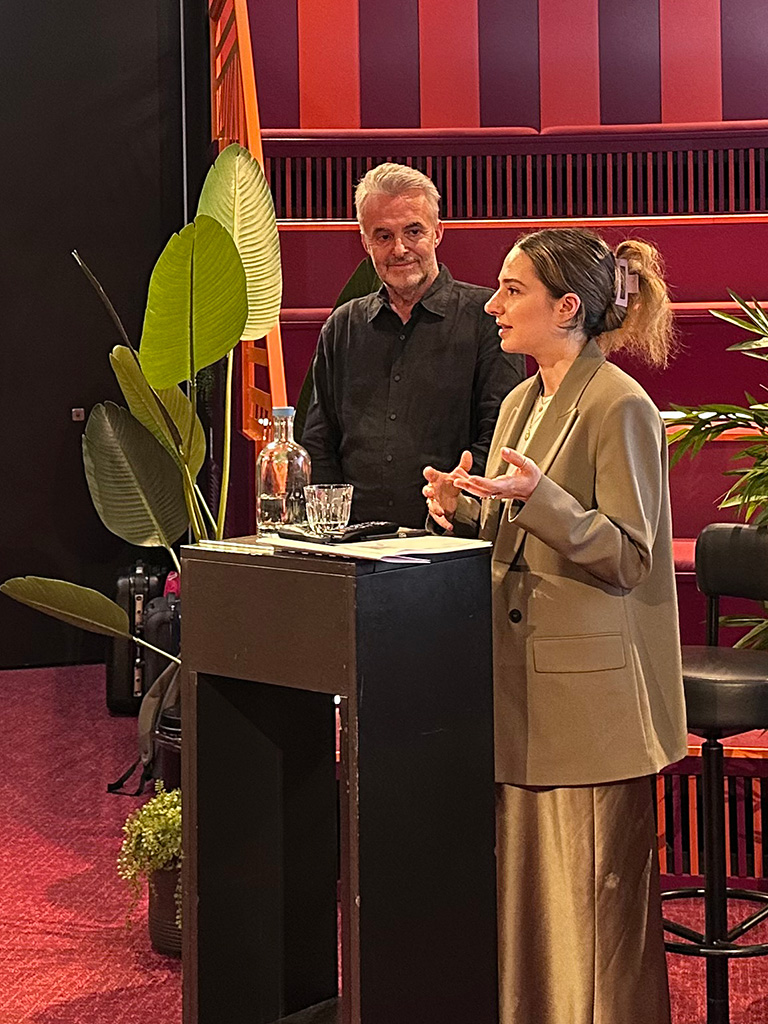
Closing & Outlook
The Academy concluded with reflections from Joachim Kroll, and Artemis Kottas, Team Leader for Administration and Communications, who underlined the growing importance of collaboration to drive harmonisation across the European railway sector—a theme that resonated throughout all sessions. They also appreciated the strong engagement and active exchange among participants, which significantly contributed to the success of the event.